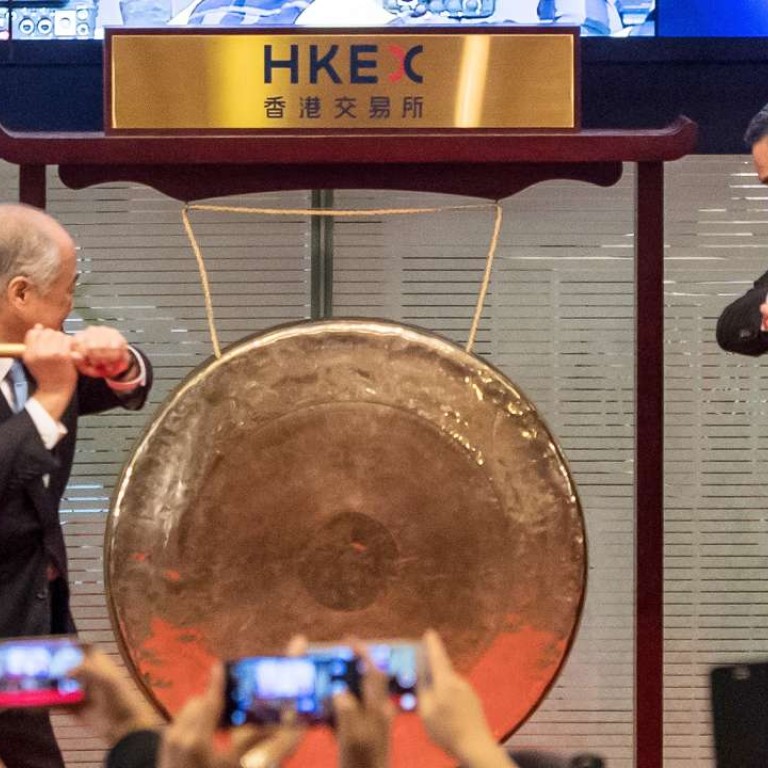
New | China and Hong Kong stocks may shed dismal year for gains in 2017, analysts say
Hong Kong stocks may benefit from funds flowing south as mainland investors seek to protect themselves from a deteriorating yuan
After a dismal year in 2016, Chinese and Hong Kong stocks may be poised for steady gains next year, as capital is redirected from an overheating property market back into equities, while corporate earnings improve among Chinese companies, analysts said.
Estimates range between a growth of 10 per cent to as much as 42 per cent, according to several analyst forecasts in a poll by the South China Morning Post.
The Shanghai Composite Index was the world’s fourth-biggest loser of 2016 among 94 major indices, declining 12.3 per cent in local currency terms, and falling as much as 18 per cent if converted into US dollars. Only the stock indices of Lusaka, Ghana and Laos performed worse than Shanghai. The index closed at 3,103.4 points.
The Hang Seng Index rose 0.4 per cent for the year to 22,000.56, while the Hang Seng China Enterprises Index fell 2.75 per cent to 9,394.87 points.
A better year is in store for 2017, analysts say. Hong Kong’s stock market will be helped by a volatile yuan, which makes the city’s capital markets – plus the fact that the Hong Kong currency’s peg to the US dollar makes it stable – more attractive for Chinese investors. The yuan has weakened by almost 7 per cent against the US dollar this year.
Hong Kong’s H shares and small-cap stocks will be particularly attractive to mainland investors, HSBC said in a report.
“We have found strong and positive correlations, approximately 90 per cent, between the southbound-northbound net flows and the pace of the yuan’s depreciation, reflecting mainland investors’ anxiety to utilise current limited channels to invest offshore financial assets and diversify their foreign exchange exposure,” HSBC China’s equity strategist Steven Sun said.
The Shenzhen-Hong Kong Stock Connect programme, launched in November, will boost Hong Kong’s small-cap stocks, based on the performance of the Shenzhen market.
Positive earnings growth will be a key driver in 2017 for mainland China’s stock market, said UBS Securities’ strategist Gao Ting. Earnings growth for all A shares may average 5.7 per cent next year, he said.
“Infrastructure will be an upside surprise, as the government looks likely to boost investment in the sector to counter housing weakness,” he said.
The market will also get a boost as capital that has been redirected from the property market finds its way into equities, given the dearth of investment options on the mainland, he said.
Morgan Stanley forecasts the Shanghai Composite Index to climb 42 per cent in 2017 to 4,400.
“Overall, we expect a more extended and subdued bull market, as lessons have been learned by the regulator regards margin and futures trading, and policing initial public offering activity,” said analyst Jonathan Garner, in a recent research note.
Garner said authorities may be prompted to keep “easy monetary conditions” in place next year because of the significant threat of trade protectionism conflict between China and the new US administration, and the relatively early stage of the Chinese recovery.
However, not every analyst is upbeat.
Spencer Leung, a Hong Kong-based strategist for UBS Securities, was more bearish towards the outlook for the Hong Kong market.
He expected the Hang Seng Index would reach 22,133 by the end of 2017, little changed from the year’s close of 22,000.56, amid uncertain corporate earnings growth. Other factors that will weigh on the city’s stocks include the pace of the rate increases by the US Federal Reserve, China’s economic slowdown, and the 2017 Hong Kong Chief Executive election.
In the worst case, a faster-than-expected pace of the yuan’s depreciation may spark a panic sell-off in Hong Kong equities, Leung said.
Gold may regain its lustre as a safe haven metal next year, rising to US$1,338 a troy ounce, helped by rising geopolitical risks, greater currency volatility, increased protectionism and rebound in demand by China and India, Credit Suisse said.
Nonetheless, the forecast was a cut back from a previous bolder projection of US$1,438 by Credit Suisse analysts, as gold recently decline from pre-US election levels, weighed by a stronger dollar, rising bond yields and expectations of higher interest rates.
With additional reporting from Jennifer Li


